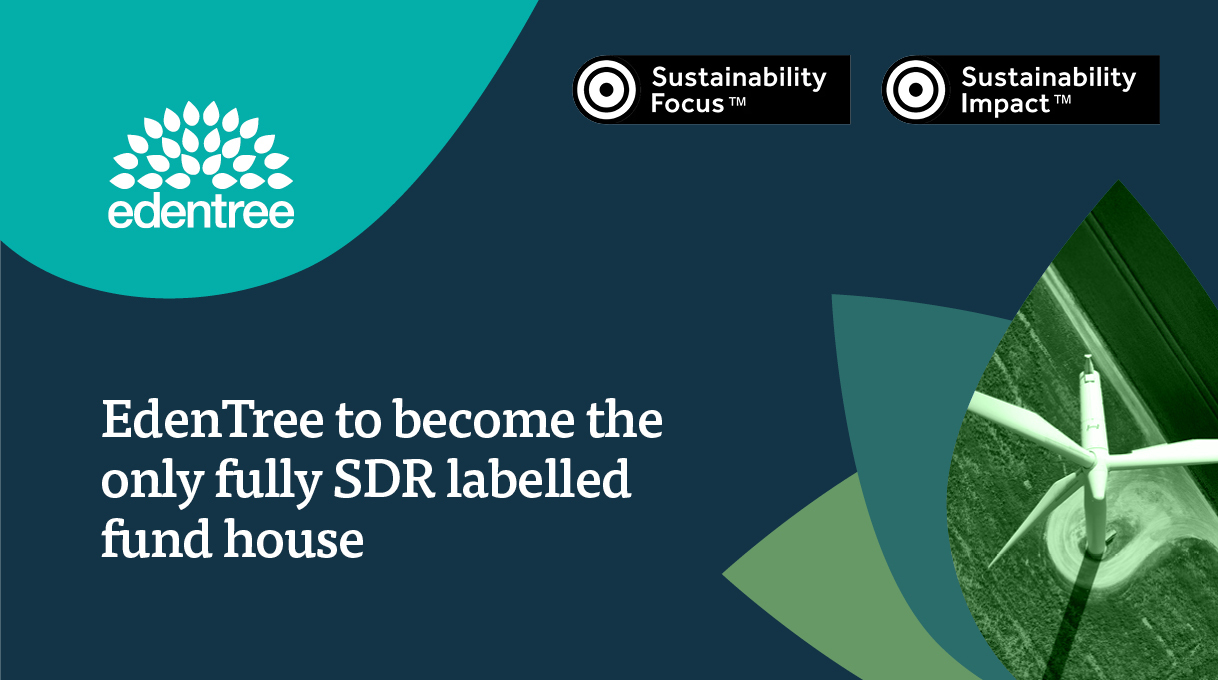In November, the FCA published its long-awaited “Sustainability Disclosure Requirements (SDR) and investment labels’ policy statement” – with the aim of ensuring that financial products marketed as sustainable do not mislead consumers. This is an important moment for our industry and one which, in our view, will help customers navigate a complex landscape and ultimately combat greenwashing.
Given the recent growth of the industry, the number of new entrants, and the range of terminology currently used (often interchangeably), we believe bringing clarity to the market is essential and our primary reaction is one of support. The final policy statement has taken into account our feedback on several points, including on the concept of additionality, the need for an absolute measure of sustainability, and support for qualitative standards to reduce reliance on ESG ratings. In our view, the final set of rules have found a good balance between principles and prescription, which should avoid many of the pitfalls seen in the EU’s SFDR regime.
Our intention is to adopt the Sustainability Focus and Sustainability Impact labels for our entire fund range at the first opportunity, with our Multi-Asset range adopting the Mixed Goals label with each sub-fund investing in a blend of Focus and Impact strategies.
Rebuilding trust
The SDR regulations have, without a doubt, raised the bar in terms of what it means to be a ‘sustainability’ fund in the UK. This will help underpin trust in the market, and there are several elements which we believe are particularly important.
Firstly, we welcome the introduction of a 70% threshold across all the labels (not just for the Sustainability Focus category, which was proposed during the consultation process). This threshold sets the minimum level of qualifying assets a fund must hold to meet a product’s sustainability objective. While applying this threshold across all labels will certainly reduce the risk of unaligned or unexpected holdings in ‘sustainability’ labelled funds, and thereby protect consumers from greenwashing, we did advocate for the threshold to be set higher and would continue to support this.
We were also pleased to see the FCA state that ‘absolute’ measures of sustainability should be used, not relative standards. Linked to this, they have stated that ‘best-in-class’ funds would not be suitable in the Focus or Impact categories. This aligns with our belief that assessments of sustainability should be based on absolute standards of responsible business conduct – not on choosing ‘the best’ of harmful sectors like tobacco, oil and gas.
Finally, we welcome the inclusion of a requirement to ‘do no significant harm’, believing strongly that positive environmental and social outcomes should not be pursued to the detriment of people or the planet. On this point, we are pleased that the FCA has avoided being too prescriptive around key performance indicators and measurement of this, which should avoid some of the overreliance on third-party data providers seen in the EU’s SFDR regime that would have increased costs and potentially raised issues around standards.
Scrutiny on stewardship
One of the main talking points of the SDR regime has been around stewardship, and we are pleased that the FCA has specified that firms must identify, and adequately resource, the stewardship strategy needed to deliver their sustainability objective.
Without this scrutiny, the industry risks engagement being used to justify any holding in a sustainability fund under the guise of ‘improvement’. Whilst we are strong advocates of the power of engagement to drive change – indeed it is a key pillar of our responsible and sustainable investment approach – we don’t believe it can be used to explain away any (potentially controversial) holding in a sustainable fund.
In our experience, some companies do not have the willingness or ability to transition to sustainability. The management team may not have the appetite to shift the business model away from harmful activities. Indeed the financial case for holding a company may collapse were it to move away from these activities. For example, engaging with McDonald’s to lead to healthy choices for consumers is unlikely to transform the business into anything other than a fast-food restaurant.
Engagement needs to be used realistically, where there is a genuine chance it will lead to change within a reasonable timeframe – and we’re pleased to see the FCA asking firms to evidence this.
Impact in public markets
Finally, we welcome the inclusion of public market equity funds in the Impact category. The initial proposals included a requirement to demonstrate ‘additionality’ (i.e. that an investor’s capital is exclusively allocated to new projects) which is generally only viable in private markets, and would have made the label less relevant to a retail audience. We are pleased that the FCA has recognised this, whilst ensuring the category remains credible through requirements to demonstrate investment ‘intentionality’ and provide a corresponding ‘theory of change’ which maps the steps between the intention of an investment and its outcome.
We see the policy statement as a positive step forward for the industry and one which will help combat greenwashing and build trust in the sustainable investment market. Given our longstanding approach to Responsible and Sustainable investment, our product range – and, indeed, our processes, governance structures and fundamental purpose as a business – is intrinsically aligned to the FCA’s new SDR and investment labelling regime.





